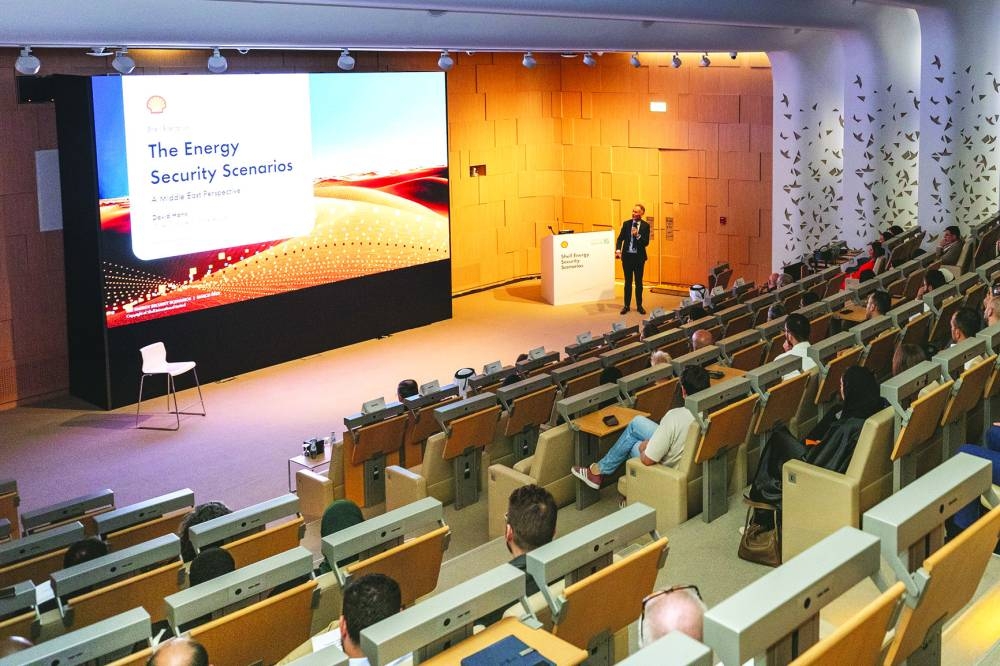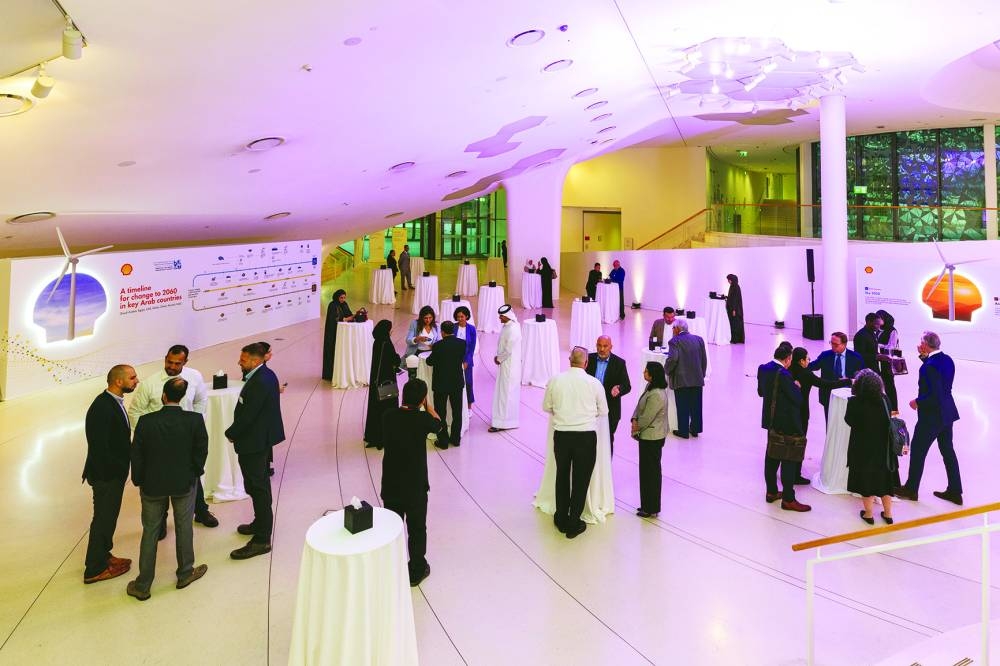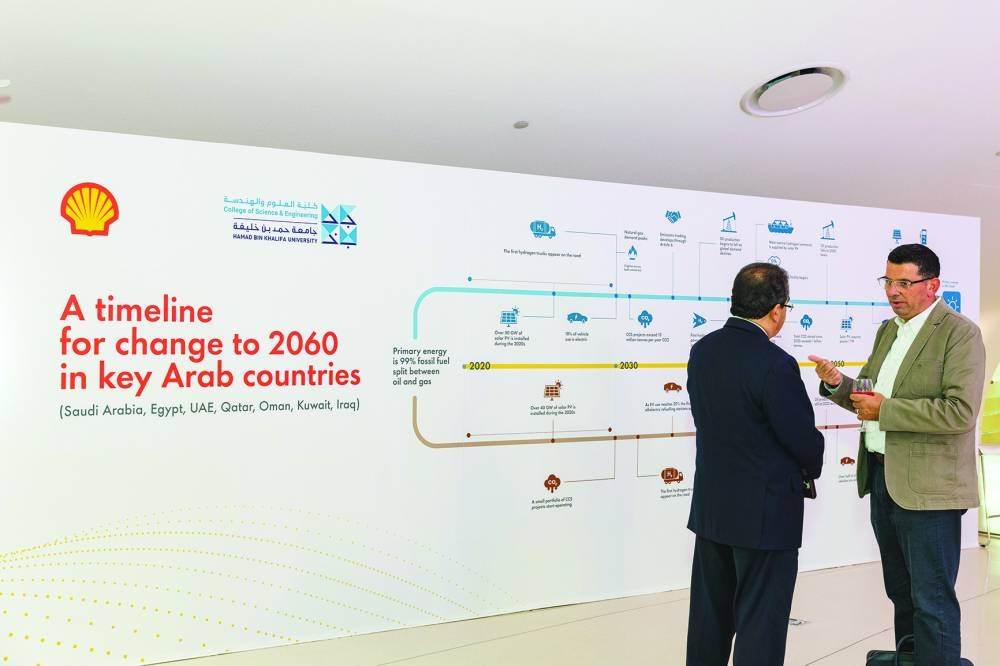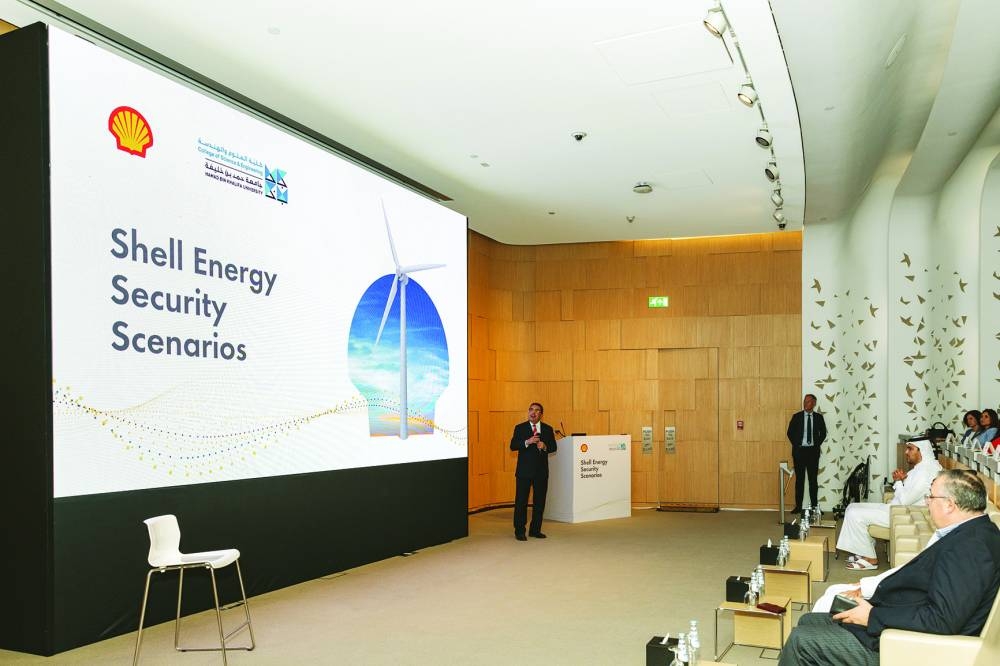The College of Science and Engineering (CSE) at Hamad Bin Khalifa University (HBKU) and Qatar Shell hosted a joint session, looking into the possible energy and climate futures in a world that has security as its dominant concern.
The launch in Qatar of Shell’s latest ‘Energy Security Scenarios’, explored how the world could evolve, following Russia’s invasion of Ukraine.
Speaking at the event was one of Shell’s prominent thought-leaders who explore possible versions of the future.
David Hone, Shell’s chief climate change adviser said, “Arab countries, including Qatar, play a vital role in the energy transition. In both of Shell’s new scenarios, there is a primary shift to solar in meeting energy demand, however, fossil fuels will remain dominant. Even by 2060 oil and gas still dominate domestic energy needs. And in the Sky 2050 scenario, we will see key Arab countries invest heavily in carbon-capture and storage.”
Dr Ahmad Abushaikha, associate professor from HBKU-CSE commented, “It was an honour hosting Qatar Shell for the local launch of its newest Energy Security Scenarios. Its presence at HBKU fully aligns with the CSE’s commitment to working with industrial partners to strengthen links between educational, societal, and economic needs.
“The scenarios outlined provided plenty of food for thought and will help inform our efforts to support the country’s energy policies and initiatives.”
The first scenario, called Archipelagos, follows how today’s pressures could play out to the end of the century. National interest remains key and renewables are mainly seen as a way to improve energy security.
By 2100, net-zero emissions is within sight, but the world has failed to meet the goal of the Paris Agreement. This scenario is “exploratory”: it seeks to plot a course from where the world stood in 2022.
The second scenario, called Sky 2050, shows just how fast the world must move to meet the goal of the Paris Agreement. Global climate security becomes the primary concern. Nations race to switch to cleaner energy and a competitive landscape emerges for technology, minerals and manufacturing capacity. Competition drives rapid change and the world reaches net-zero emissions in 2050.
This scenario is “normative” and extremely challenging: it set goals of net-zero emissions by 2050 and warming restricted to below 1.5°C by 2100, and then worked back to the realities of 2022 to explore how these end points could be reached.
Shell has been developing possible visions of the future since the early 1970s. It helps academics, governments, and businesses to explore ways forward and make better decisions.

The College of Science and Engineering (CSE) at Hamad Bin Khalifa University (HBKU) and Qatar Shell hosted a joint session looking into the possible energy and climate futures in a world that has security as its dominant concern.



